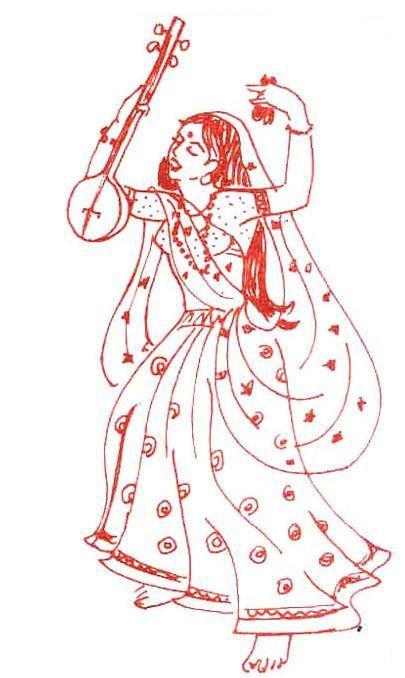Paddhathi Bhajan

We notice that though the entire sampradaaya is included in the Paddhathi Krama, we normally refer to Paddathi (Basic) as the Paddhathi Bhajan and Divyanaamam onwards as Special Bhajan Paddhathis. This is because Poojopachaaram, Poorna Ashtapadi, Deepa Pradakshinam, Unchavrutthi, Kalyaanams, Vasanthothsavam etc. necessarily are preceded by Thodaya Mangalam, Guru Keerthans and Daasarvaal Krithis (including Ashtapadi and Tharangam). Hence this has stayed as PADDATHI BHAJAN. Dhyaana Bhajan may be performed without the Paddathi Bhajan (Basic).
Importance of PADDHATHI BHAJAN (Basic):
Why Paddhathi and what is the importance of performing Bhajan in the given order? Every activity is preceded by a planning of the objective, how to approach the goal, the method, the steps to go through, etc. There is a discipline to be followed in each of such activities. Even in serving food or the method of intake, there is a step by step process - what to serve first, what next and what last etc. The taste of food, if all the dishes are mixed together and taken, is different from tasting each dish separately. We enjoy more by tasting each dish separately. Are we not following these in our daily life? What do we do when we want some great personality to visit us? First we praise him and invite him to our house. He may not agree as we are strangers. So we go through someone best known to both of us, who prevails upon him to accept the invitation. When he comes, we receive him with pomp and show and make him comfortable. After washing his feet, we make him seated and host him by offering fruits and other eatables and something to drink or eat. Then we mix with him and chat, be friendly with him, enjoying his company. We pray to him for his blessings/seek from him what we want. Then we make him rest for a while and wake him up and then he leaves. When we seek someone's favour, we have to go through these formalities to please him first.Similarly, in Bhajan Sampradaaya, we have an order of performance for proper enjoyment.
First we think of God by praising his qualities and gunaas and do vandanam (Thodaya Mangalam). To get him with us, we seek the grace and help of Guru for which we sing in praise of Guru (Guru Keerthanam). Guru preaches the attainments of Daasarvaals like Jayadeva, Naaraayana Theertha, Badraachala Ramadaas etc. etc. who have got the grace of God through Naama Sankeerthanam and we follow their method by singing their keerthans (Daasarvaal Keerthanams). This is because, it is easy to approach God through the footsteps of Gurus and Bhakthaas. Then, we invite him to come to us and on his appearance, we perform Pooja and Archana (Pooja Paddhathi and Upachaara Keerthanam). We cannot stand the site of formless, nameless, omnipotent and omniscient God and we need Divya Chakshus to visualise the vision of God. Our Guru teaches us as to how to prepare for it. He prepares us to do meditation on Swaroopa Dhyaana (seeing God in different roopaas). As we fondle a child by bedecking it with different costumes and make-ups and enjoy its varied appearances, so we venture to get God's vision in the form of Ganapathy, Saraswathi, Subramanya, Ayyappa, Siva, Parvathy, Rama, Krishna, Vittal, Govinda, Hanumaan etc. etc. by singing in praise of them (Dhyaanaam). This is because Swaroopa Dhyaana is easier compared to Aroopa Dhyaanam (formless). Paddhathi Bhajan thus is the first stepping stone for spiritual evolution through Bhakthi Marga.
Paddhathi Bhajan can be equated to Swaroopa Dhyaanam of the Vedantic method, since through Paddhathi Bhajan, we are meditating on various forms of God (Swaroopa Dhyaanam) through songs, which give us more opportunity to go near the God. Paddhathi Bhajan, if performed well, with the right bent of mind, following the given order, will lead to perfection and higher heights in Bhakthi marga.
While dealing with the Attavanai topics, we have detailed the paddhathi & songs. Hence, to avoid duplication, we have not explained the songs or the method of performing Paddhathi Bhajan here.
- Achala Bhakthan .